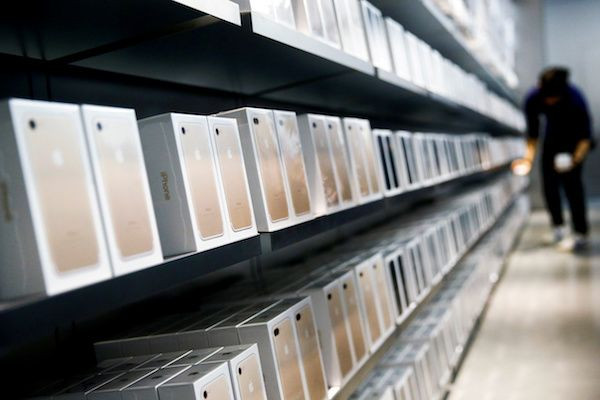iPhone 8 Price: 10th Anniv. iPhone More Expensive Than Samsung Galaxy S8, S8+?

The iPhone 8 is poised to be the biggest head-turner in the tech industry later this year. For one thing, the device is going to be the handset that will commemorate Apple’s smartphone line’s 10th anniversary. As such, it is rumored to feature stellar features and specifications. However, the device will not come cheap. In fact, it will likely be the most expensive iPhone from Apple yet.
MacRumors recently learned from UBS analyst Steven Milunovich that the high-end iPhone among the reported three models Apple is launching this year will come with a very expensive price tag. The handset is going to be costly that consumers would have to spend more cash to purchase it than to own either of the Samsung Galaxy S8 and Galaxy S8+ phones.
Milunovich believes that when Apple unveils the iPhone 8 in September, it will be presenting it with an $850 to $900 price tag. And that’s just for the base model with 64GB internal memory. The analyst thinks that the 256GB model could cost between $950 and $1,000. If true, it would be the most expensive iPhone debuting in the U.S. yet, and it’s also going to be the first mainstream phone in the country with such a costly price tag.
READ: Apple developing own graphics processors for iPhone, iPad
Samsung’s newly unveiled flagships are also not that budget-friendly, but they are in no way playing in the same price range as the upcoming iPhone 8 with OLED display. One could get the unlocked Galaxy S8 for $720 from Verizon, $724.99 from Best Buy, $729 from Metro PCS and $750 from T-Mobile. On the other hand, the unlocked Galaxy S8+ costs $840 at Verizon and $850 at AT&T and T-Mobile, according to TechRadar.
Milunovich based his prediction from estimates of the factory cost of the next iPhones. The iPhone 8 is said to cost $70 to $90 more to manufacture than the iPhone 7 Plus, which starts at $769. The more expensive price tag is said to be due to the upgrades in the 10th anniversary iPhone, like the inclusion of an edge-to-edge OLED display with very thin bezels, as well as the addition of wireless charging technology, facial recognition/iris scanning and True Tone display. The removal of the physical Home button would mean the introduction of the screen-embedded Touch ID sensor, which is also seen to contribute to the costly price point of the device.
© Copyright IBTimes 2025. All rights reserved.




















